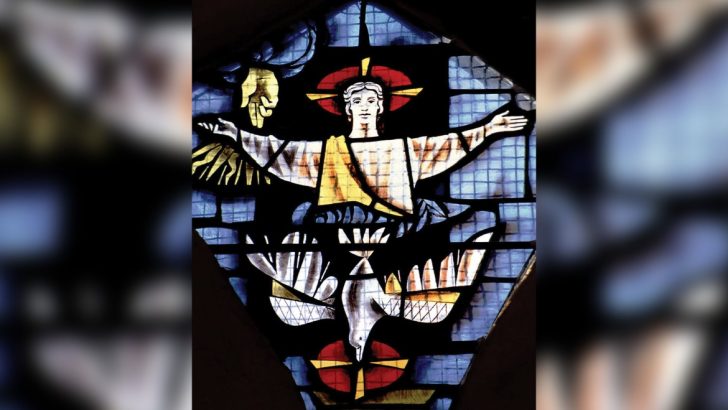Christians are baptised “in the name of the Father and of the Son and of the Holy Spirit,” affirming their faith in the Trinity. This is the central mystery of Christian faith, revealing God in himself and as the source of all salvation. The Trinity encompasses the Father, Son, and Holy Spirit as one God, the Most Holy Trinity, with distinct persons unified in essence.
God has been called ‘Father’ as Creator, covenant-maker, and protector. Jesus revealed God as Father in an eternal relationship with his Son. The Son, “the Word” and “radiance of God’s glory,” is consubstantial with the Father. The Holy Spirit, sent by the Father and Son, reveals the full mystery of the Trinity. The Spirit is “God, one and equal” with the Father and Son, proceeding from both.
The Eastern tradition emphasises the Father as the first origin of the Spirit, while the Western tradition highlights the consubstantial communion of Father and Son.
The Holy Trinity
The Trinity is foundational to Christian belief, especially in Baptism. Early councils and Church Fathers clarified Trinitarian faith against heresies, developing terminology like “substance” (divine being), “person” (Father, Son, Holy Spirit), and “relation” (their distinctions). The Trinity is one God in three persons, distinct in relations of origin: the Father generates, the Son is begotten, and the Spirit proceeds. This unity is inseparable and relational.
God’s work reflects his Trinitarian unity. The divine economy is the common work of Father, Son, and Spirit, each acting according to their personal properties. The Father is the source, the Son incarnates, and the Spirit sanctifies. Christian life is communion with the Trinity: glorifying the Father through the Son in the Spirit.
The ultimate goal of divine work is uniting creation with the Trinity. Even now, believers are called to be a dwelling for God, living in adoration and unity with the divine presence.
God, the Creator
God’s omnipotence is central to the Creed, reflecting his universal might and loving care. Scripture describes God as the creator and ruler of all, whose power is evident in creation and history. God’s omnipotence is not arbitrary but inseparable from his wisdom and justice.
Evil and suffering challenge faith in God’s almightiness, but the crucifixion and resurrection of Christ reveal divine power through humility and victory over sin. Faith embraces this mystery, drawing strength from God’s power. Mary exemplifies this faith, magnifying the Lord’s might.
Belief in God’s omnipotence allow us to grow in hope, affirming that “nothing is impossible with God.” This trust helps us to accept all revealed truths, no matter how extraordinary.


 God the Father, Jesus and the Holy Spirit are depicted
in a stained glass window at the Glasgow cathedral in
Scotland. Photo: CNS.
God the Father, Jesus and the Holy Spirit are depicted
in a stained glass window at the Glasgow cathedral in
Scotland. Photo: CNS. 